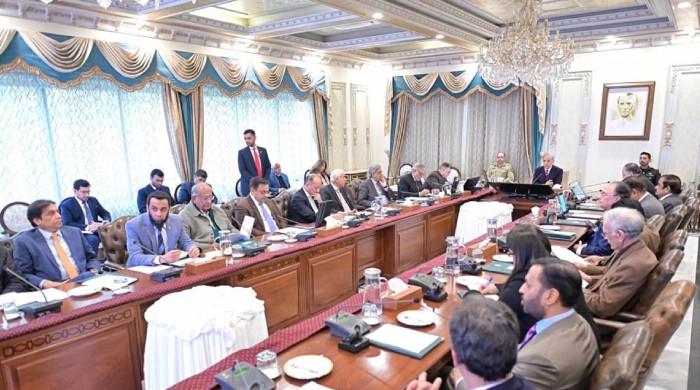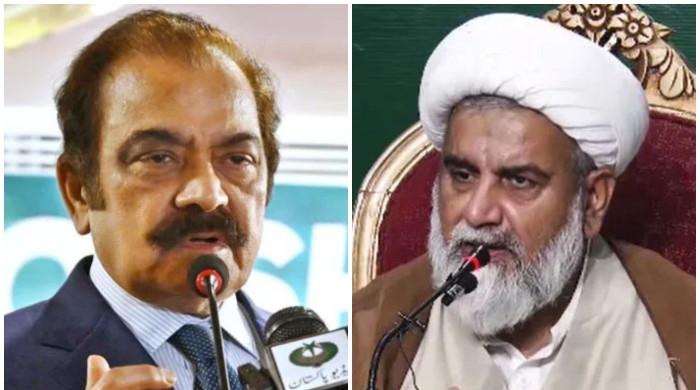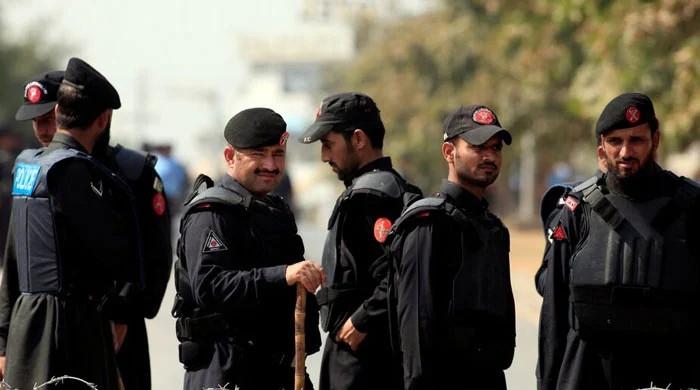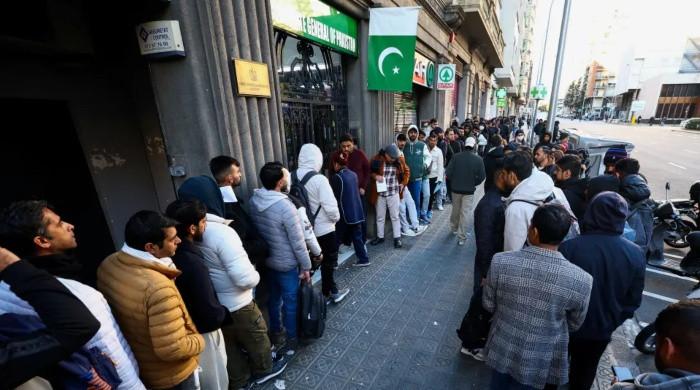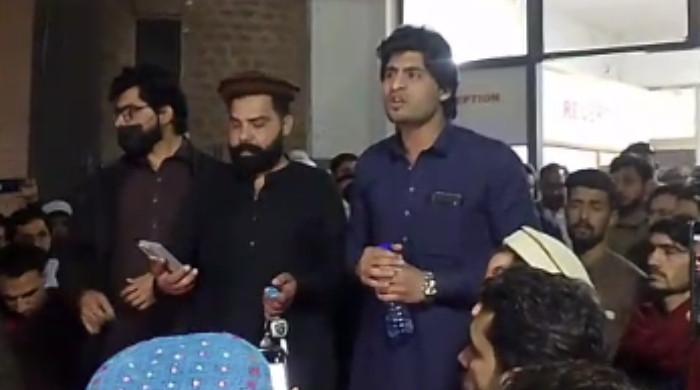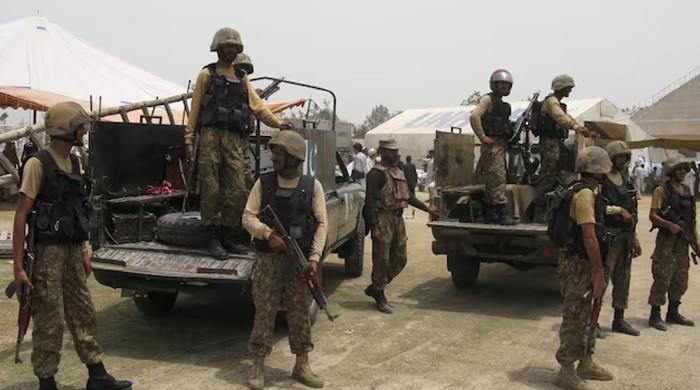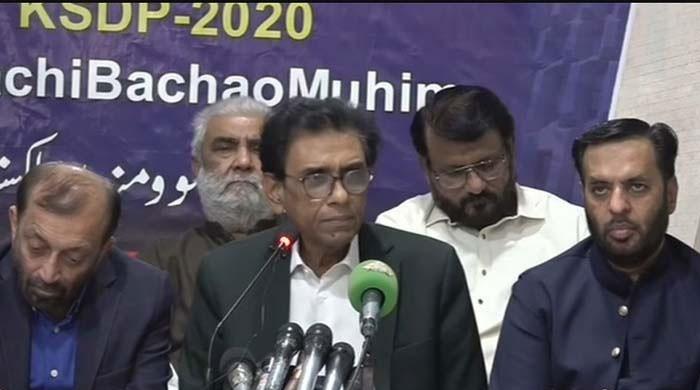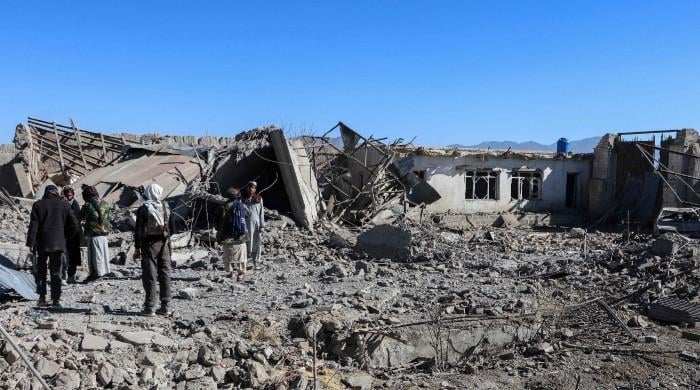Govt seeks national consensus to root out terrorism
Apex committee says political and economic stability linked to permanent peace in country
February 24, 2023
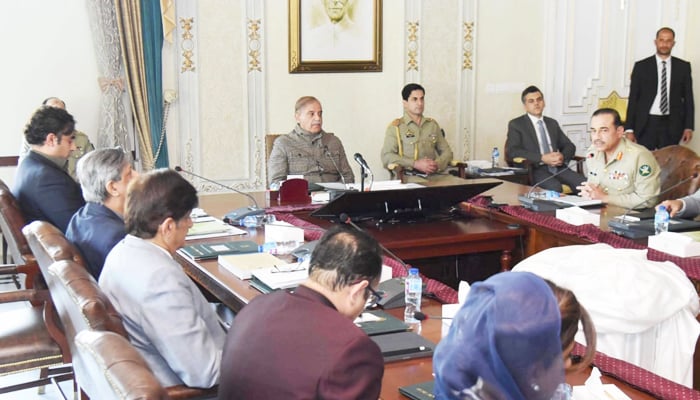
- Political, economic stability linked to country's peace: committee.
- Committee takes stock of media's role during terror operations.
- PM Shehbaz slams PTI for seeking to resolve matters "on streets".
ISLAMABAD: The National Apex Committee — comprising the country's top military and political leadership — Friday sought national consensus to root out militancy as Pakistan faces a fresh wave of terrorism.
The meeting chaired by Prime Minister Shehbaz Sharif, according to a statement issued by the PM's Office on Friday, reviewed in detail the incidents of terrorism in the country — especially the terror attacks at the Peshawar Police Lines Mosque on January 30 and at the Karachi Police Chief Office on February 19.
The committee was formed in 2015 after the Army Public School (APS) attack to oversee the implementation of the National Action Plan (NAP) against terrorism.
“Representatives of intelligence agencies briefed the participants on the overall security situation in the country and the operations against terrorists,” the statement said, adding that it was the uniform consensus of all participants that Pakistan could not afford internal instability.
“National unity and collective struggle are the need of the hour,” it said, adding that in order to achieve these goals, formulating a national consensus was of critical importance.
It is pertinent to mention here that the meeting came after Defence Minister Khawaja Asif and Director General of the Inter-Services Intelligence Lieutenant General Nadeem Anjum visited Kabul to discuss the rise in militant activities, including the Tehreek-e-Taliban Pakistan's (TTP) attacks.
The meeting was attended by Chief of Army Staff (COAS) General Asim Munir, provincial chief ministers, Gilgit Baltistan’s chief executive, prime minister of Azad Jammu and Kashmir, federal ministers, all chief secretaries from federation and provinces, inspector-generals of police from Islamabad and all provinces, heads of intelligence agencies and military, as well as the national coordinator of National Counter-Terrorism Authority.
Reviewing NAP decisions
During the meeting, participants reviewed progress on the implementation of the National Action Plan (NAP) and the decisions taken in the previous meeting earlier this month, following a deadly suicide attack in Peshawar.
The previous meeting had agreed to upgrade and train the government’s security agencies including the National Counter-Terrorism Authority (NACTA), Counter-Terrorism Department (CTD) and police, along with the provision of weapons, technology and other equipment were approved in principle in the meeting, the statement read.
It was also decided that the CTD headquarters would be immediately built in Khyber Pakhtunkhwa, while a forensic laboratory — like the one in Punjab — will also be established in the province.
In today's meeting, Minister for Law Senator Azam Nazeer Tarar informed members regarding the progress on measures taken to make the investigation, prosecution, and punishment of terrorists more effective.
“Participants at the meeting agreed that eradication of terrorism, economic recovery, and stability are interlinked,” the statement read.
Role of media
During the meeting, participants also deliberated upon the role of media — particularly social media — during terror incidents and subsequent operations of security forces, the statement said.
It raised concerns that the media airs such information during operations that might benefit terrorists and their facilitators. In turn, such stories might adversely affect the operations underway and lead to a "life-threatening impact" on the soldiers involved in those operations, it said.
"It was suggested that [the authorities] should seek guidance from prevalent SOPs and regulations around the world pertaining to cyberspace and terrorism," the statement said.
In line with the suggestion, authorities will hold consultations with media houses and relevant stakeholders, the statement said, mentioning that steps will be taken to ensure that in emergencies, rumours and speculations can be avoided.
The statement also mentioned that the SOPs would help security forces conduct their activities without hurdles and ensure that people aren't afraid due to news stories based on speculations or rumours.
"The meeting also decided that a focal person should be assigned the responsibility to provide facts to the media and public in an emergency situation," it added.
'Unprecedented courage'
Sindh Inspector General of Police (IG) Ghulam Nabi Memon, during the meeting, informed the members of the committee about the attack on Karachi Police Chief's office and the facts that have emerged so far.
Participants of the meeting also paid tribute to various law enforcement agencies, including Pakistan Army, Rangers, Frontier Corps (FC), counter-terrorism department (CTD), and the police for “showing unprecedented courage and bravery against terrorism across the country”.
Meanwhile, a pressing issue underscored during the meeting was the non-availability of funds for Karachi police, even when they had already been approved.
To remedy this issue, the statement said: “Relevant authorities were directed to ensure that all obstacles in the way of the completion of projects related to the Karachi Police, CTD, and security should be removed without delay.”
During the meeting, the government also pledged to provide “full support and assistance” to the provinces in fulfilling their responsibilities of maintaining peace and order.
Highly condemnable
The meeting also holds importance as the Imran Khan-led Pakistan Tehreek-e-Insaf (PTI) is holding its "Jail Bharo Tehreek (court arrest movement)" across the country — which also requires the attention of law enforcement agencies.
During the meeting, PM Shehbaz slammed PTI — albeit without mentioning its name — for consistently creating instability in the country during such dire times, saying: "Unfortunately, there is still a segment of society that wants to get things done on the streets.”
He said that PTI — which was in power in KP at the time — had refused to attend a NAP meeting following the attack on the APS, adding that the government also invited all the stakeholders to the apex committee meeting after the Peshawar attack, but a “particular party” did not bother to attend the meeting
“They still want to resolve the matter on the streets that were highly condemnable,” he remarked.
He maintained that though the government was compelled to accept strict International Monetary Fund (IMF) conditions, the state of Pakistan was above all. Even the government’s coalition parties also put their political interests at stake for the sake of the country and to improve the economic situation.
He said that cooperation by the friendly countries was no less than Allah’s blessing, but the foremost priority should be to put our own house in order otherwise no one would come up for help.
The premier further said that anyone’s ego cannot be supreme when “it comes to national interests”.




